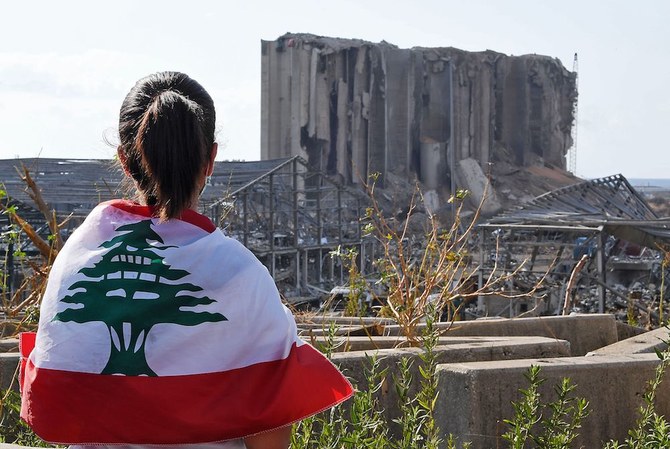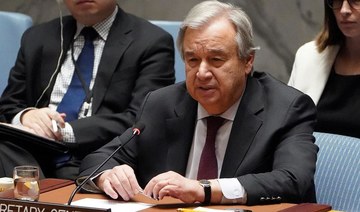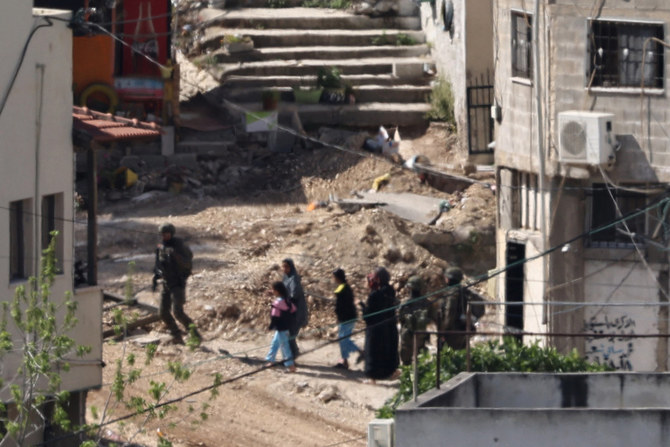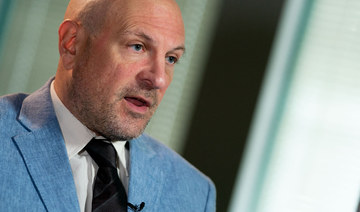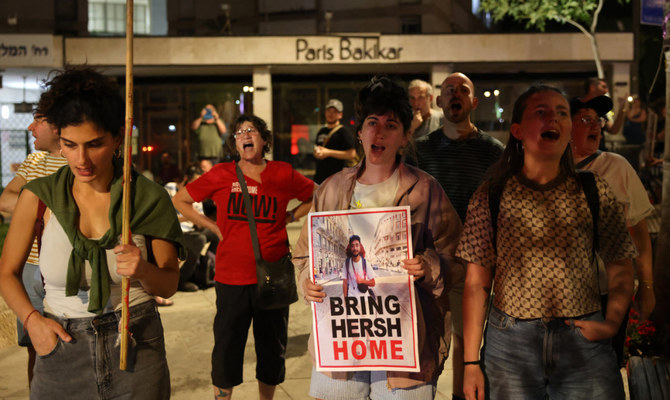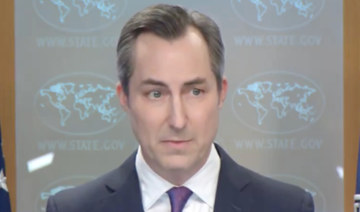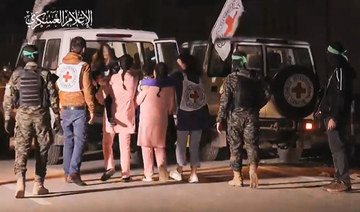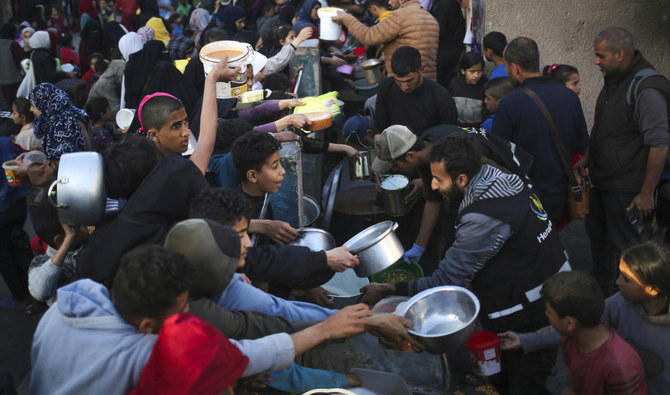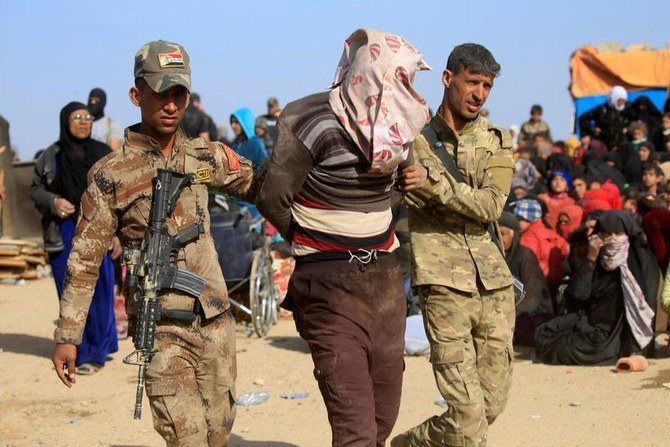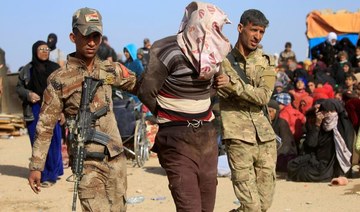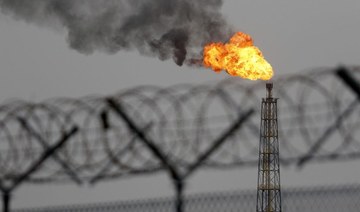BEIRUT: The people of Lebanon observed a minute of silence on Tuesday to mourn the victims of the massive explosion that destroyed Beirut’s port area a week ago. It began at at 6:08 p.m., the time that the city was rocked by the main blast on Aug. 4.
Volunteers, activists, residents of the damaged areas and families of the victims also marched to the port of Beirut in a show of sorrow and anger over the tragedy, which killed dozens of people and left thousands injured.
As work continues to clear rubble from damaged and destroyed buildings — especially at the Port of Beirut, where 40 people are still unaccounted for — the official death toll has risen to 171 after more bodies were recovered. They included Lebanese Army personnel, Civil Defense employees, firefighters and silo workers.
The blast happened when 2,750 tons of ammonium nitrate that had been stored in a warehouse at the port since 2014 ignited and exploded last week. It has been reported that welders had been carrying out work on the warehouse shortly before the explosion.
Maj. Gen. Mohammad Khair, secretary-general of the High Relief Commission in Lebanon, said it is estimated the more than 70,000 houses were destroyed or damaged by the explosion.
Relief work and assistance continues in the affected areas. Dozens of non-governmental organizations are operating from Martyr’s Square, in the heart of Beirut. They are distributing food and water to people left homeless by the disaster, and hundreds of volunteers who have come to the city from across the country, carrying shovels and brooms, to help with the clean-up operation. Field hospitals have been set up to care for those who are injured while clearing broken glass, rubble and debris from houses and shops.
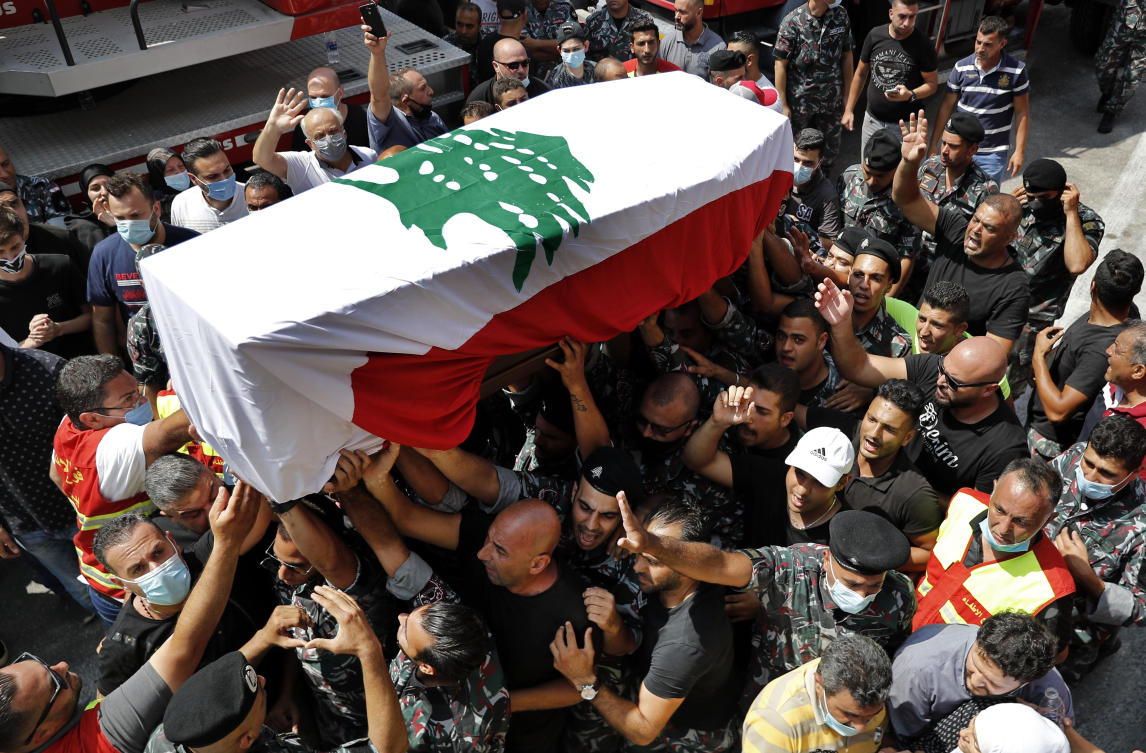
Firefighters carry the coffin of their comrade Rami Kaaki, one of ten firefighters who were killed during the last week's explosion that hit the seaport of Beirut, during his funeral, at the firefighter headquarters in Beirut on Tuesday. (AP)
“We have been here since the second day after the explosion, assisting people whose homes were destroyed, furniture and kitchen appliances were damaged and clothes were torn away, just like their memories,” said Rami, a volunteer who is a member of a scout association. “And we still have a long way to go.”
Mahmoud Senno, another volunteer, said: “I came all the way from Barja to help clear the wounds of Beirut. Residents keep saying that even though not one official has come to check up on them, the presence of the young volunteers has made them feel warm and supported during this tragedy.”
While no members of the government or parliamentary officials have dared to visit the disaster areas so far, John Barsa, the acting administrator of the US Agency for International Development (USAID) visited Lebanon for the first time to inspect the port and other areas devastated by the explosion. USAID has set up a camp near the port to assess the needs of the population, and Barsa briefly helped clear debris and broken glass. Accompanied by US Ambassador to Lebanon Dorothy Shea, he also met the owners of damaged houses and shops.
Opinion
This section contains relevant reference points, placed in (Opinion field)
Forming a government amid factional rifts has been daunting in the past. Now, with growing public discontent and the crushing financial crisis, it could be difficult to find someone willing to be prime minister.
A week after the blast, residents of Beirut were picking up the pieces as search operations continued for 30 to 40 people still missing.
“Our house is destroyed and we are alone,” said Khalil Haddad. “We are trying to fix it the best we can at the moment. Let’s see, hopefully there will be aid and, the most important thing: hopefully the truth will be revealed.”
“We will not forget until nooses are erected (for the leaders),” one man said at Tuesday’s demonstration after he read out some of the victims’ names shown on the screen.
Diab, announcing his cabinet’s resignation, blamed endemic graft for the explosion, which was the biggest in Beirut’s history and compounded a deep financial crisis that has ravaged the currency, paralyzed the banking system and sent prices soaring.
“I said before that corruption is rooted in every juncture of the state but I have discovered that corruption is greater than the state,” Diab said, blaming the political elite for blocking reforms.

A vigil held on Tuesday for the victims lost in a massive explosion, in Beirut. (Reuters)
“The American people stands by the Lebanese people, and the US administration has pledged to send $17 million in disaster aid to Lebanon,” said Barsa. He assured the people that he “will not meet any Lebanese official and US aid will go directly to the people, through local partners.”
In other developments, efforts to restore the port have begun with the appointment of Bassem Al-Qaisi as its new director-general, the day after the arrest of his predecessor, Hassan Koraytem.
The UN Office for the Coordination of Humanitarian Affairs has announced that the World Food Program will send 50,000 tons of wheat to Beirut to replace stocks stored in silos at the port that were destroyed in the explosion.

People watch on a giant screen the moment of the massive explosion, as they gather in honor of the victims at the scene on Tuesday. (AP)
The United Nations Educational, Scientific and Cultural Organization office in Beirut warned that the blast caused “partial or overall destruction of more than 70 public and 50 private schools in Beirut and its suburbs, which might disrupt the new school year and deprive more than 55,000 Lebanese and non-Lebanese students enrolled in these schools of their right to education.”
The ruling administration of Prime Minister Hassan Diab has become a caretaker government after he announced its resignation on Monday. On Tuesday, calls and political initiatives intensified to agree a consensus about the formation of a new, effective government capable of addressing all the challenges and crises facing Lebanon.
A source at the presidential palace said: “President Michel Aoun is calling for the formation of a government as soon as possible, and side consultations are ongoing to set a date for parliamentary consultations aimed at appointing a new prime minister.”
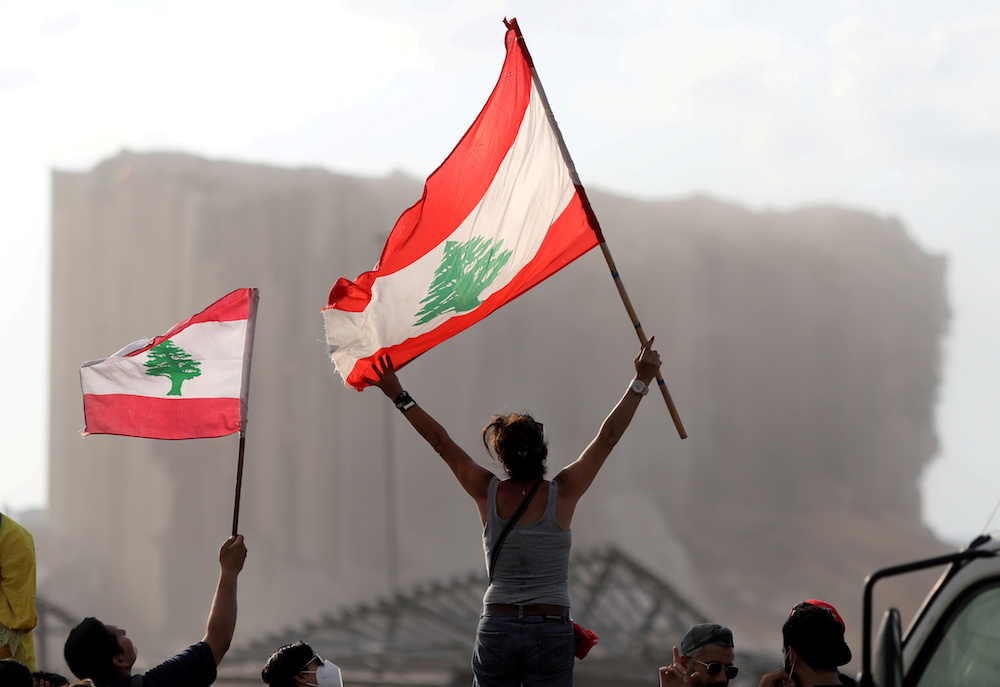
Demonstrators wave Lebanese flags during protests near the site of a blast at Beirut's port area, Lebanon on Tuesday. (Reuters)
Among the many Arab and foreign officials who have visited Lebanon to offer support in the aftermath of the explosion, Egyptian Foreign Minister Sameh Shoukry and his Jordanian counterpart Ayman Al-Safadi arrived in Beirut on Tuesday. German Foreign Minister Heiko Maas is expected to arrive in the city on Wednesday for the funeral of a worker at the German Embassy who died in the blast.
After the resignation of Diab’s government on Monday, the French Foreign Ministry said “the priority is the formation of a new government” and that “without reforms, Lebanon will be heading toward collapse.”
During a Security Council session on Lebanon on Monday night, UN Secretary-General Antonio Guterres said that the country would not be left to face its challenges alone but also stressed the need to achieve economic reforms.





